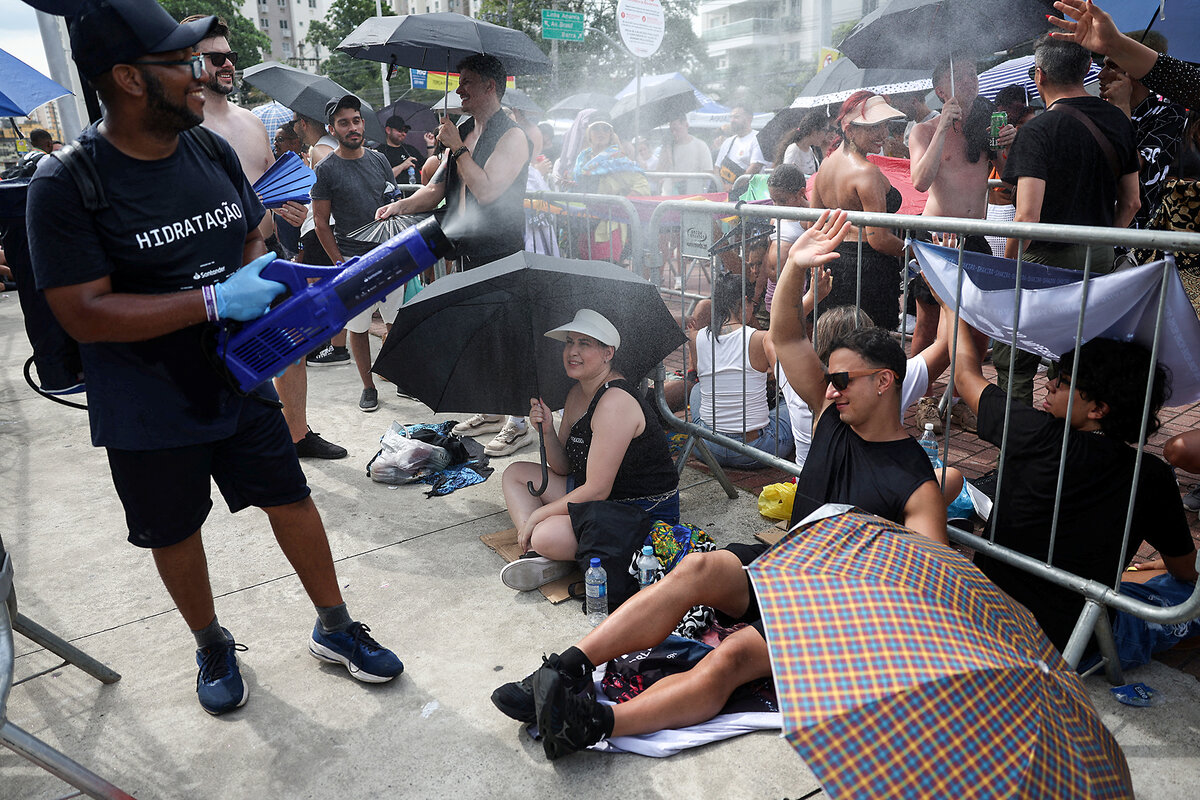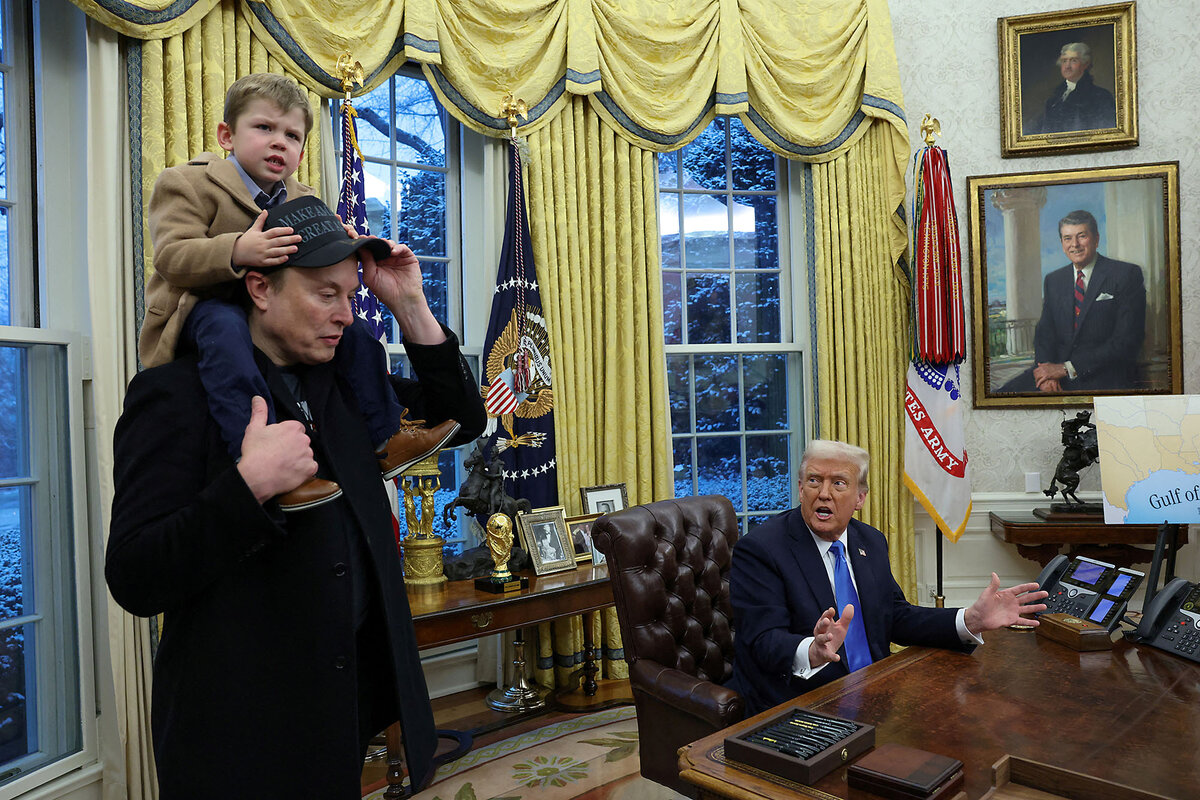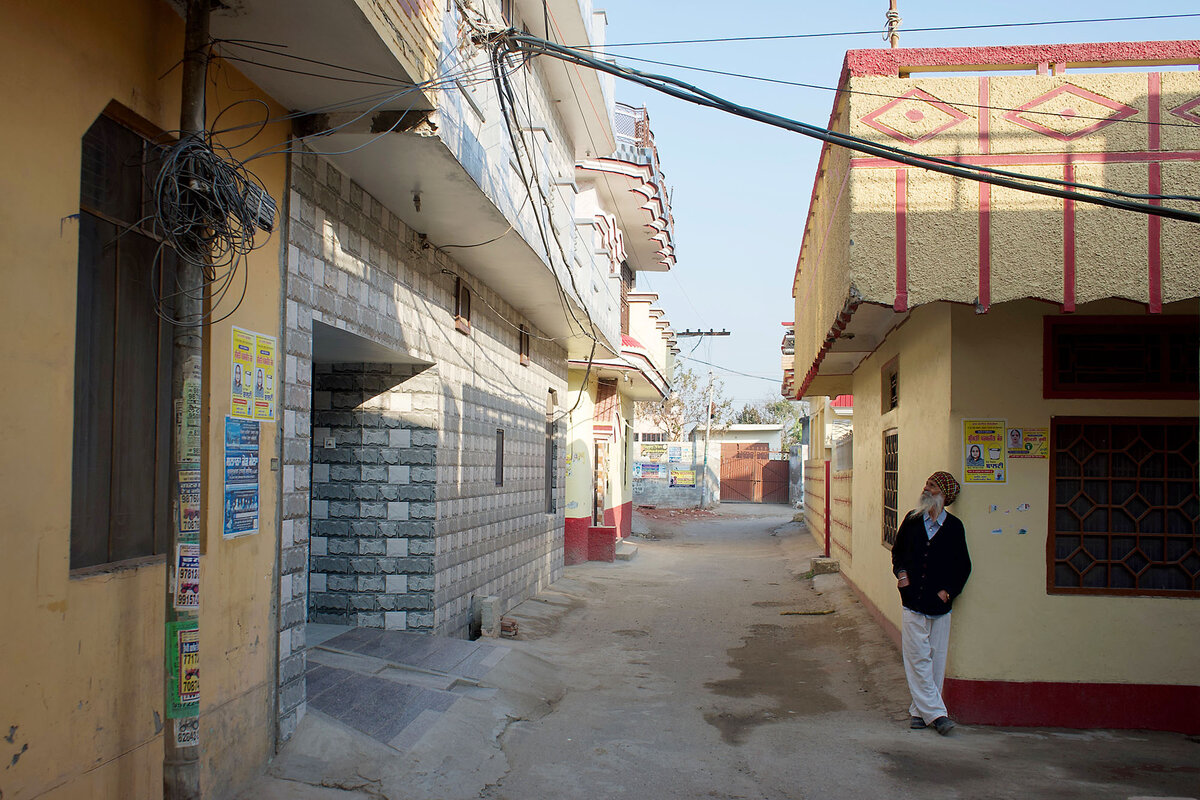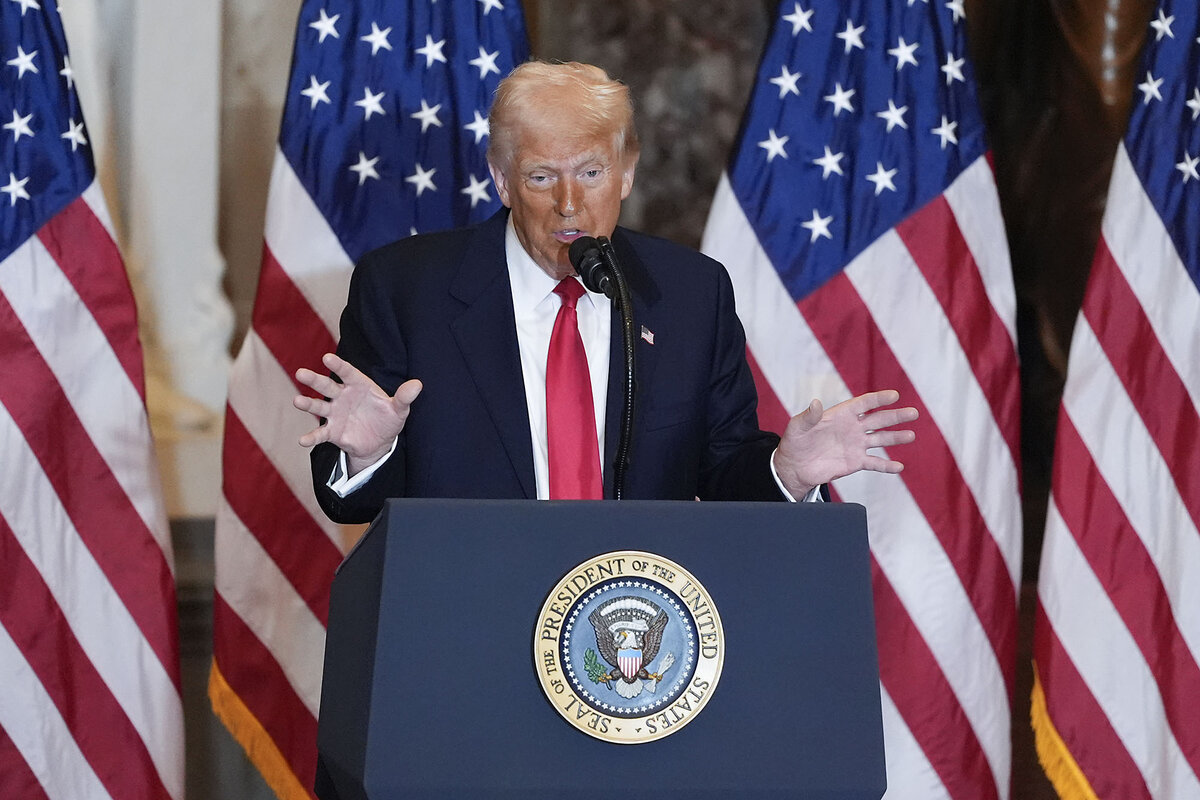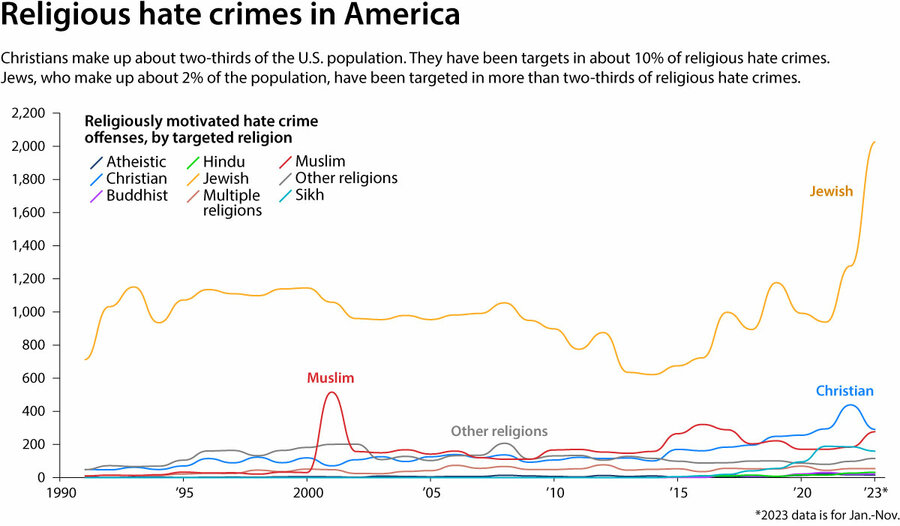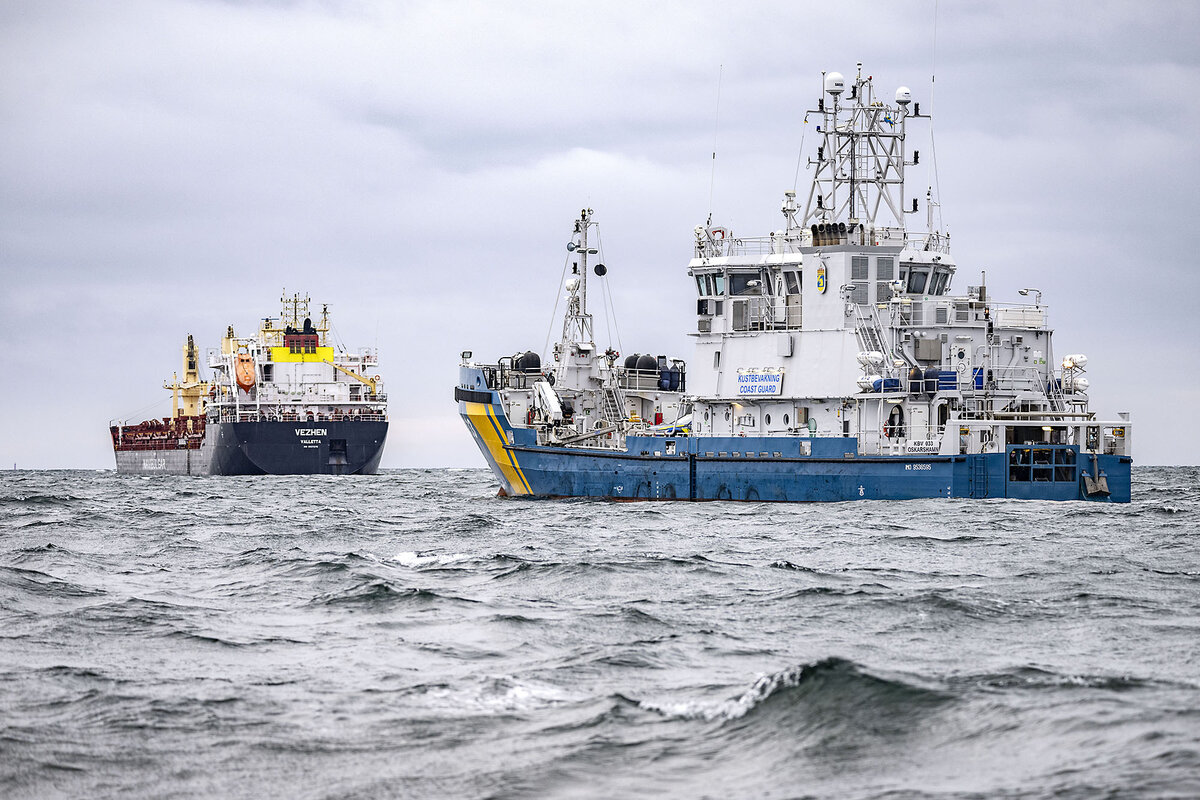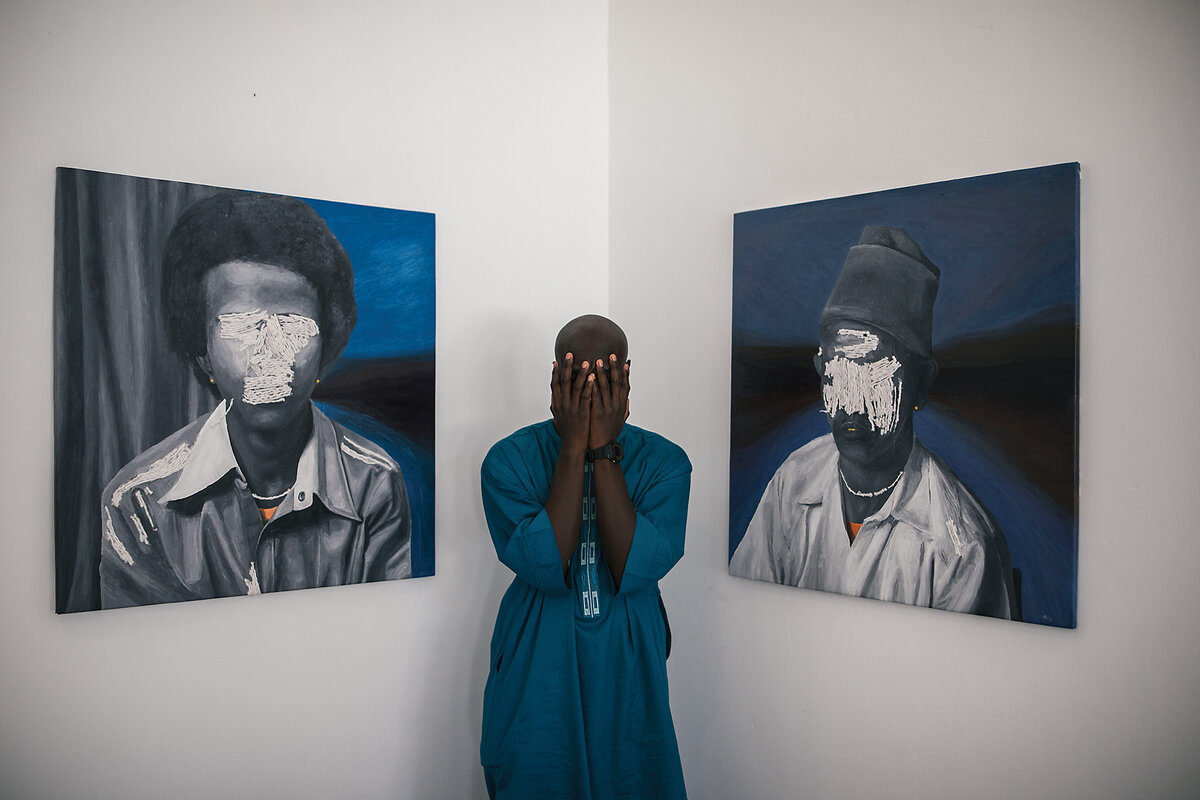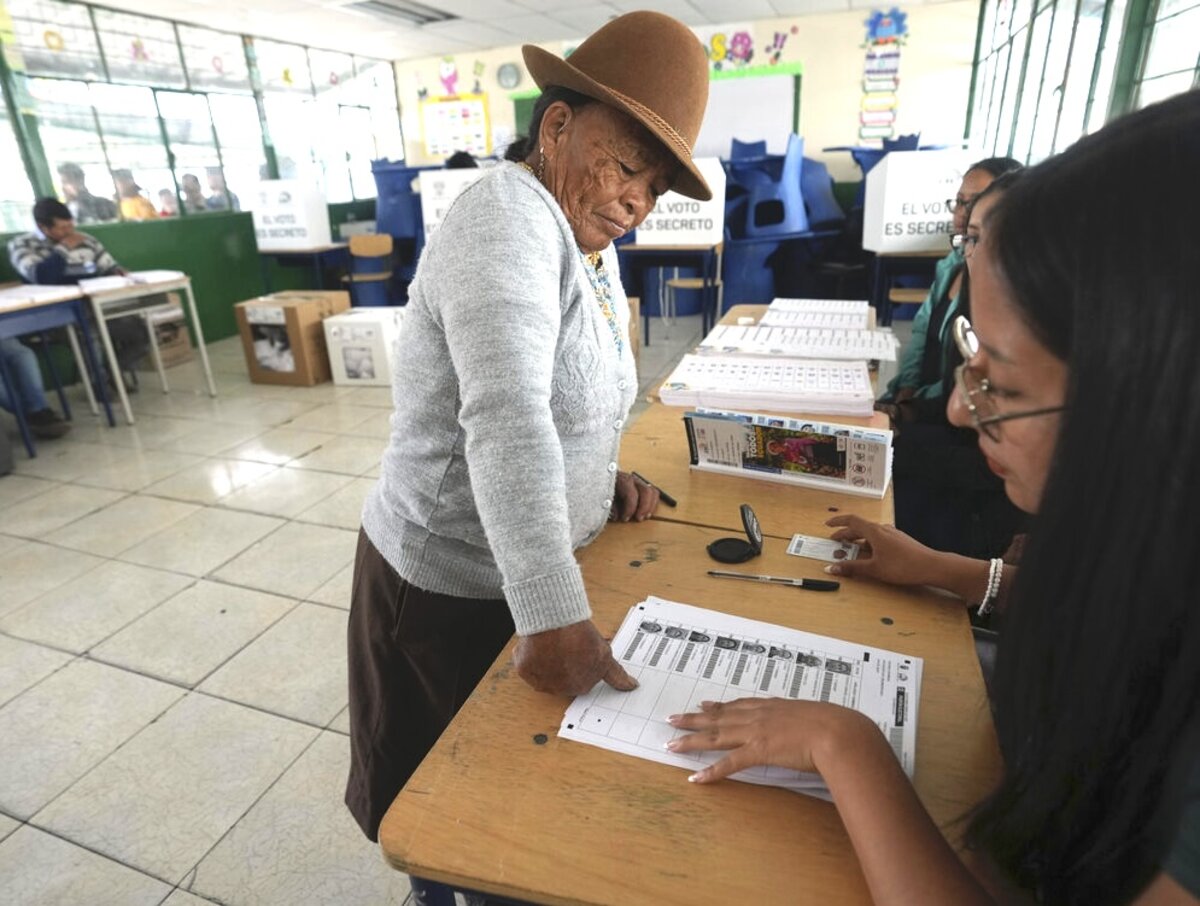- Action in Gaza, Israel: Hamas appeared to indicate that it will release more Israeli hostages as planned. Israel’s military had called up reservists to prepare for a possible resumption of fighting in Gaza ahead of a Feb. 15 deadline for Hamas to do so.
-
Rising prices: U.S. inflation accelerated last month as the costs of groceries, gasoline, and rents rose. The consumer price index increased 3% in January from a year ago, the Labor Department reports.
- Related Monitor story: Where to see inflation’s lasting pressure? A hotel worker’s story shows the struggle.
- A negotiation on Ukraine? President Donald Trump upended three years of U.S. policy toward Ukraine Feb. 12, saying that he and Russian President Vladimir Putin had agreed to begin negotiations on ending the war following a dramatic prisoner swap.
- Japanese automakers drop talks: Honda, Nissan, and Mitsubishi are dropping their talks on a business integration. Nissan Chief Executive Makoto Uchida said he could not accept a proposal for his company to become a subsidiary of Honda.
-
Hindu worshippers gather: More than 10 million devout Hindus immersed in the waters near a confluence of rivers in the Indian city of Prayagraj during a span of four hours Feb. 12, authorities said.
- Related Monitor story: Our reporter’s trip to the world’s largest holy festival was interrupted by a deadly stampede. His account reveals the risks and the spiritual importance of the Kumbh Mela, and how India’s relationship with Hinduism is changing.

Why is Christian Science in our name?
Our name is about honesty. The Monitor is owned by The Christian Science Church, and we’ve always been transparent about that.
The Church publishes the Monitor because it sees good journalism as vital to progress in the world. Since 1908, we’ve aimed “to injure no man, but to bless all mankind,” as our founder, Mary Baker Eddy, put it.
Here, you’ll find award-winning journalism not driven by commercial influences – a news organization that takes seriously its mission to uplift the world by seeking solutions and finding reasons for credible hope.
Explore values journalism About usMonitor Daily Podcast
- Follow us:
- Apple Podcasts
- Spotify
- RSS Feed
- Download
Promises and early actions are made and taken by every U.S. administration. Some are foreshadowed in campaigns. Some get walked back. The current chief executive has been active on issues ranging from penny-minting and plastic straws to the composition of fighting forces and a future state for Gaza. Last night, a judge cleared the way for federal buyouts for government workers. Today, the Monitor’s Simon Montlake looks at how the disruption of federal agencies, in particular, could play out in one place crucial to the president’s success: Americans’ daily lives.
Already a subscriber? Log in
Help fund Monitor journalism for $11/ month
Monitor journalism changes lives because we open that too-small box that most people think they live in. We believe news can and should expand a sense of identity and possibility beyond narrow conventional expectations.
Our work isn't possible without your support.
News briefs
Today’s stories
And why we wrote them
( 7 min. read )
As courts weigh the legality of actions taken by Elon Musk’s Department of Government Efficiency, the response from American voters is also starting to take shape. Will the same people who support pruning a bloated federal government, in the abstract, feel differently as those cuts ripple through their own communities? “When you start ripping wires out of the federal government,” notes one political scientist, “the unintended consequences could be strong and unexpected.”
( 5 min. read )
When India-U.S. immigration makes the news, it’s often in relation to H-1B visas, of which Indian nationals are the primary recipients, mostly for science or technology fields. But generations of Indians have followed their own paths to the U.S. Now, with President Trump set to meet with Indian Prime Minister Narendra Modi on trade, an agreement between the Indian government and the U.S. to cooperate on the deportation of unauthorized immigrants threatens to disrupt the lives of thousands of Indians. We went to a village from which many have migrated.
The Explainer
( 5 min. read )
Religious liberty has been threatened in the United States in recent years, says President Donald Trump, who is creating a task force to stamp out anti-Christian bias. Some wonder whether the new task force will protect all faiths, pointing to the high rates of antisemitic and anti-Muslim incidents in the U.S. How the Justice Department will define anti-Christian bias, and how it will enforce against it, is not yet clear.
( 5 min. read )
Russia has deployed a “shadow fleet” of hundreds of mostly aging oil tankers that is worrying European nations. It’s not just about sanctions, which the vessels circumvent, with the fleet now the linchpin of Russia’s oil exports. They also pose environmental and navigational risks, particularly in the Baltic Sea. Another area of concern: undersea infrastructure damaged by these vessels in apparent acts of sabotage. NATO says it will work with the private sector to track the ships.
In Pictures
( 2 min. read )
Two artists displaced by Sudan’s civil war have seen their bond deepen by showing their work in Kenya’s capital, Nairobi. Their friendship – now growing, far away from the galleries of Sudan’s vibrant capital city of Khartoum – is a bright spot in a war that has killed 150,000 people and driven out more than 11 million. “I’m trying to capture the resilience of the Sudanese,” says Waleed Mohammed, one of the painters, to “reflect on memory, identity, the transformations of having to leave home.”
The Monitor's View
( 2 min. read )
Faced with the highest rates of violent crime in the world, leaders in Latin America have turned to increasingly harsh tactics in recent years to rein in drug cartels and gangs. For a while, their people went along. Declining homicide rates have meant children can play in public parks again.
But on Sunday, when voters in Ecuador forced a runoff between the two top presidential contenders, they effectively hit pause on the region’s embrace of hard-line approaches to law and order. Polls show that most support emergency measures to make streets safer, but many reject what they see as attempts by politicians to manipulate them through fear.
As the main opposition candidate, Luisa González, said Sunday night, “We do not want a state of war, but a state of peace that is built with social justice.”
Latin America has gone through periods of mano dura (iron fist) rule before. The current wave caught on with the rise of Nayib Bukele in El Salvador. Under a nearly three-year-long state of emergency, he has suspended rights and deployed a military dragnet to incarcerate tens of thousands of young men without due process. The homicide rate plunged, and regional leaders took note. Honduras soon followed suit.
So has Ecuador. Upended by 22 criminal groups, the once-idyllic country on the Pacific coast of South America has had one of the world’s highest increases in its homicide rate. Since being elected in November 2023 to finish a vacated term, President Daniel Noboa has deployed the military in the streets, curbed freedoms to enable mass incarceration, and imposed curfews.
Ecuadorians applauded. In a referendum last April, 80% of voters backed Mr. Noboa’s strategy. But their enthusiasm has since waned. The country was under a state of emergency for more than 250 days last year – and has been again since January. On Sunday, Mr. Noboa and Ms. González finished less than a percentage point apart, each winning 44% of the ballot. A runoff is set for April.
The turn in public opinion in Ecuador reflects an understanding among ordinary citizens in Latin America that security ultimately requires strengthening the rule of law rather than suspending it. The country’s outgoing attorney general, Diana Salazar, has made uprooting corruption between officials and drug cartels the cornerstone of ending violence.
President Bernardo Arévalo is waging a similar effort in Guatemala. Security, he said, requires building “more dignified societies and with greater opportunities for development.” In the run-up to the runoff, voters in Ecuador may hope their leaders agree.
A Christian Science Perspective
Each weekday, the Monitor includes one clearly labeled religious article offering spiritual insight on contemporary issues, including the news. The publication – in its various forms – is produced for anyone who cares about the progress of the human endeavor around the world and seeks news reported with compassion, intelligence, and an essentially constructive lens. For many, that caring has religious roots. For many, it does not. The Monitor has always embraced both audiences. The Monitor is owned by a church – The First Church of Christ, Scientist, in Boston – whose founder was concerned with both the state of the world and the quality of available news.
( 4 min. read )
As we recognize the infinite nature of divine Love, we discover we’re free to express God’s healing love without limit or negative consequence.
Viewfinder
